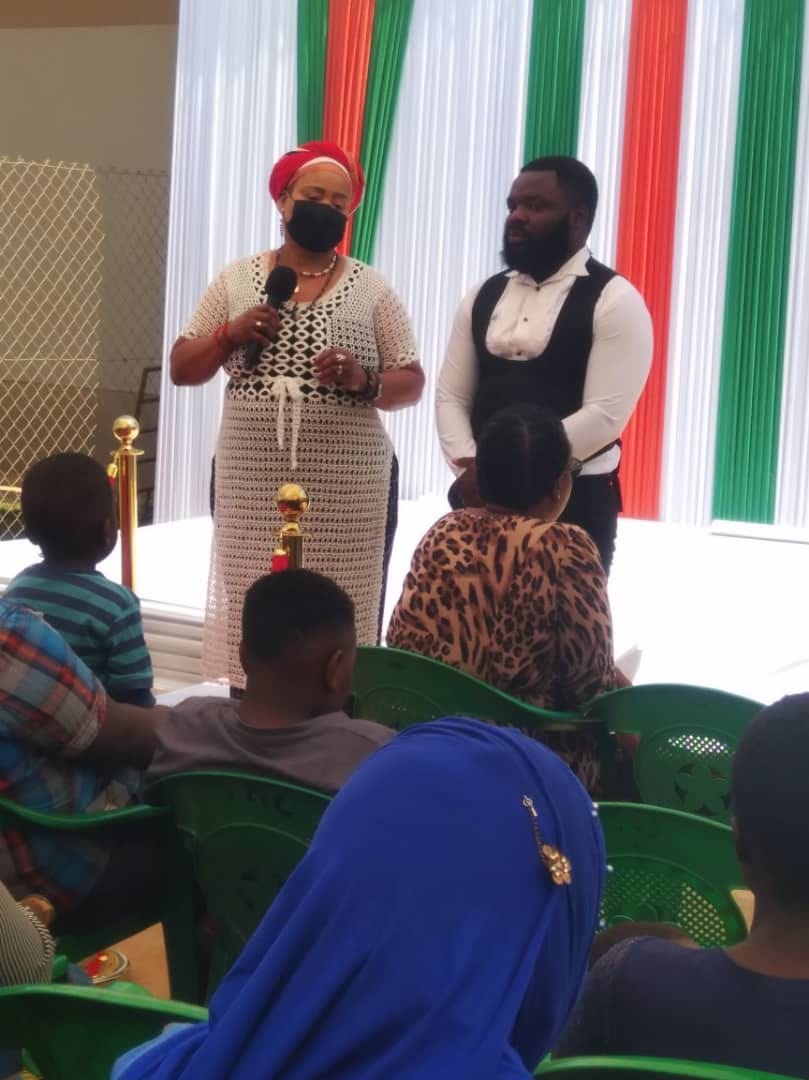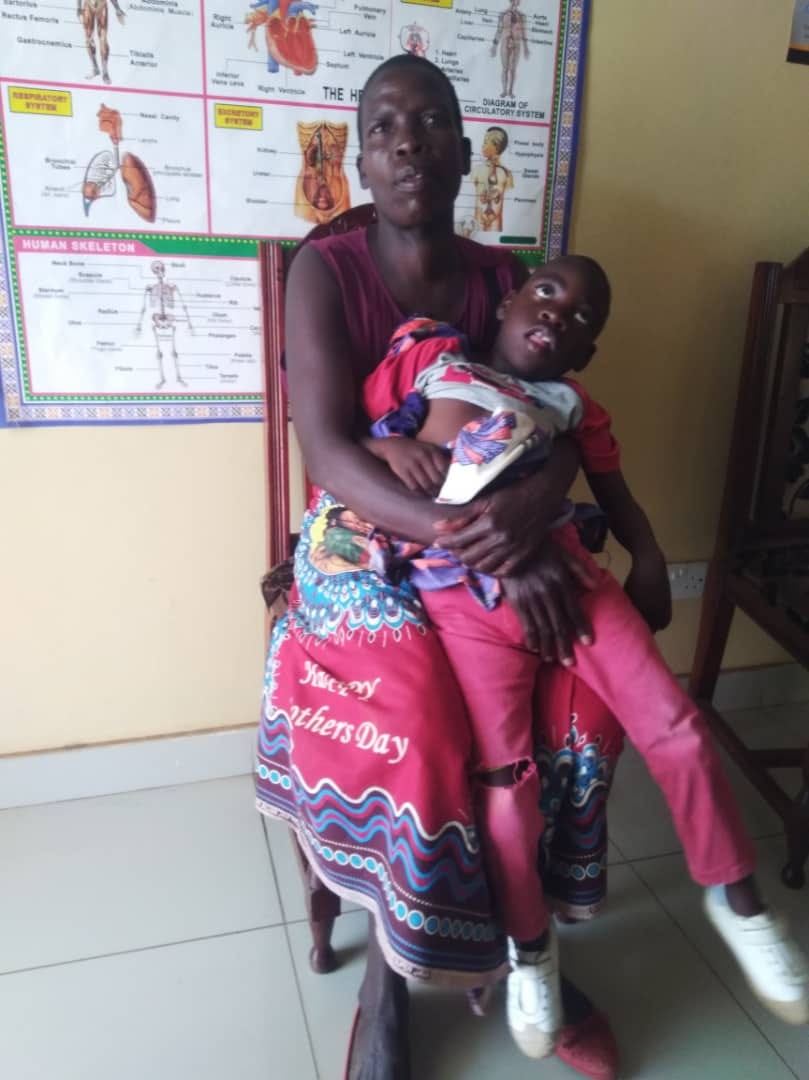Abandoned for birthing a physically-challenged child
Doreen's son is two years and eight months old. He suffers from cerebral palsy and is unable to sit, crawl, walk, or speak.
Malawi: Thursday, August 18, 2022, was just like any other day for Doreen Divaison, a 20-year-old woman who had planned to take her 2-year-old physically challenged child to physiotherapy on a material day.
Her husband, however, had other plans.
While Doreen was at the clinic, the man went to their house, removed the door, packed his belongings, including all household items, and left for his village.
He even took the family beddings, leaving Doreen and her child with only two pieces of zitenje (cloth wrappers) to sleep on. Doreen was left alone with only her and the baby's clothes.
Doreen's son is two years and eight months old. He suffers from cerebral palsy and is unable to sit, crawl, walk, or speak. Doreen and her husband had never argued before the incident, so this surprised her.
According to Doreen, her husband had expressed his displeasure at the birth of a disabled child and had expressed his displeasure indirectly.
Is it, however, a crime to give birth to a disabled child?

According to Kennedy Kadewere, Director of Active Life Physiotherapy, a clinic that provides therapy for children with physical and mental disabilities, their clinic has many women whose husbands have left because they have disabled children.
Every Tuesday and Thursday, Active Life Physiotherapy holds a free clinic at Chiuzira in Lilongwe's T/A Tsabango's area for children born with physical challenges such as cerebral palsy, speech deprivation, intellectual challenges, and hydrocephalus, among others.
“We have women travelling long distances to come to the clinic with their children due to lack of resources. Many of them were abandoned by their fathers because they were born with a disability,” said Kadewere.
So far, the physiotherapy clinic has seen over 700 children, some of whom have made progress by being able to use their limbs to walk or hold objects such as pencils, spoons, and the like.
According to Kadewere, the majority of these women lack even the most basic necessities for their children, such as food, clothing, and diapers, because they are unable to engage in business because there is no one to care for their children.
“As an organization, we are trying to raise funds to give these women so that they start small businesses which they can do at home because we are not able to meet their daily needs. Sometimes we give them porridge for the children as many of them cannot make progress due to malnutrition,” revealed Kadewere.
Mercy Luciano is caring for her 7-year-old grandson who has cerebral palsy and is unable to sit, walk, or do anything on his own. His father refused to accept his pregnancy, and he still does not recognise the boy as his child.
Luciano looks after three other grandchildren but lacks a viable business to support them and must rely on handouts. She claims her house is in such disrepair that she fears the upcoming rainy season.
“We rely on people’s goodwill to get things such as laundry soap. There is one man amongst us, who also has a child with a disability. He comes to Chiuzira frequently to give us foodstuffs, soap and other basic amenities. We are really surviving on his goodwill, otherwise, we are going through very tough times,” said Luciano.
The Parents of Disabled Children Association of Malawi-PODCAM is the umbrella organisation for all parents who have children with physical and mental disabilities, and it reveals that such parents face a lot of abuse and discrimination.
Emily Maunde-Mwasinga, Chairperson of PODCAM's Lilongwe Chapter, agrees with Doreen and Luciano that men abandon their wives after discovering they have given birth to a disabled child.
“Every week we receive three or 4 women who come to complain that their husbands have left on account of their disabled child. Unfortunately, these men, whether it’s a punishment from God or not, end up marrying another woman and again bearing a child with a disability. This is abuse against us women,” worried Maunde-Mwasinga.
“At the moment we urge these women to join groups in their localities so that they can engage in village savings and loans initiatives to raise funds for small-scale businesses. Otherwise, the situation among these women is terrible,’ she added.
Patricia Kaliati, Minister of Gender, has harsh words for such men, calling them "cowards" who are unfit to be called "men," adding that such men will not succeed in life.
“I have received similar complaints before and my office normally calls the men in question for a discussion. Many men in this country act like they don’t appreciate what God has given them. Children are blessings from God and the best people can do is to be grateful for what they have been given,” said Kaliati.
Meanwhile, Tithandizane Parents Support Group was formed in 2020 by a group of mothers with physically challenged children in Area 23's Chiuzira who were tired of being abused and discriminated against.
Twasi Sainet, the group's chairperson, says the group meets every Tuesday and contributes K200 each as a savings and loan, which they use to buy their children's necessities.





